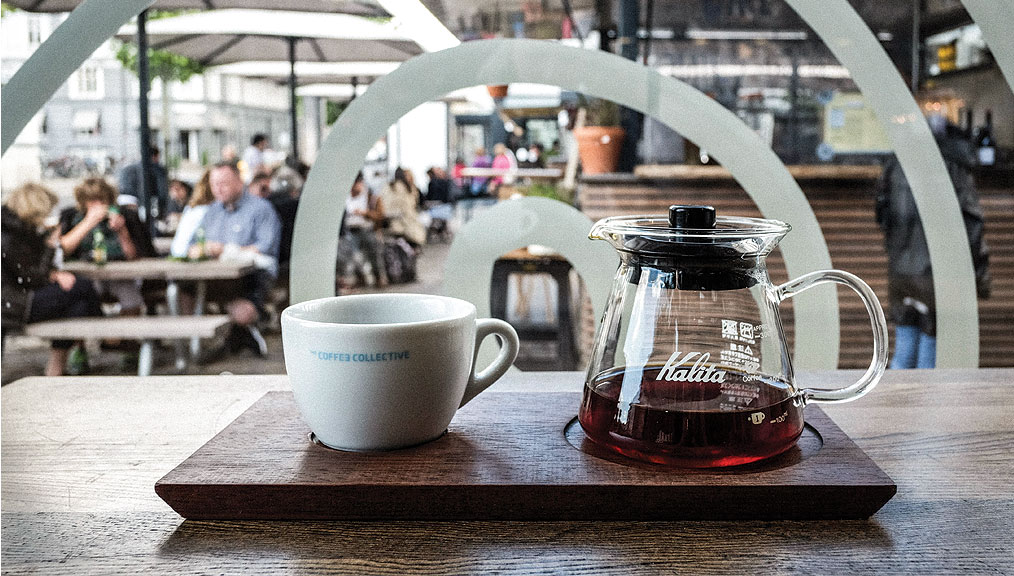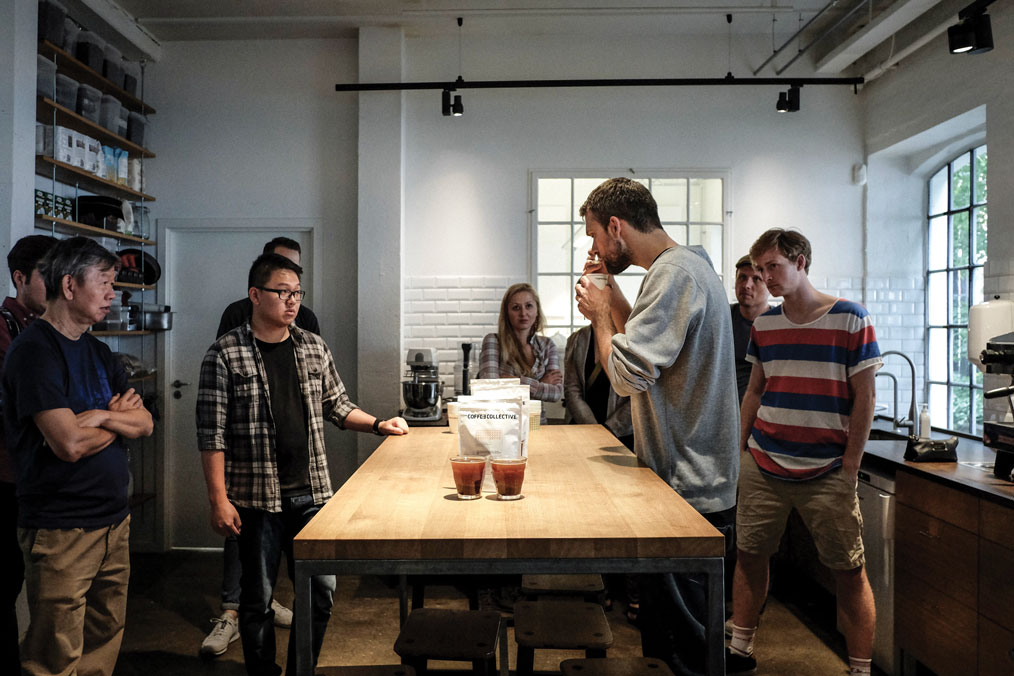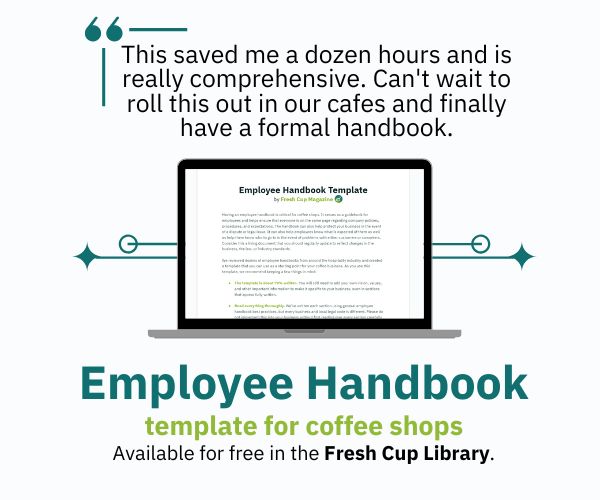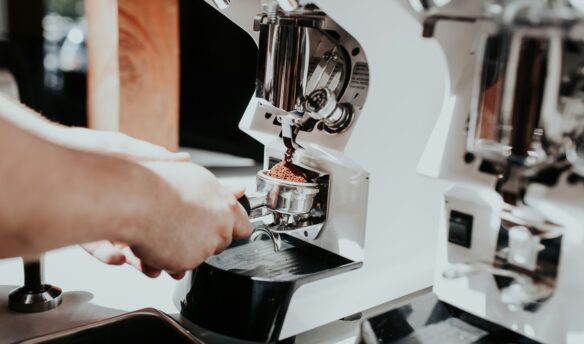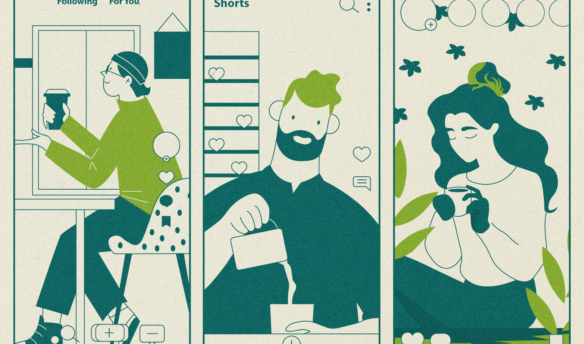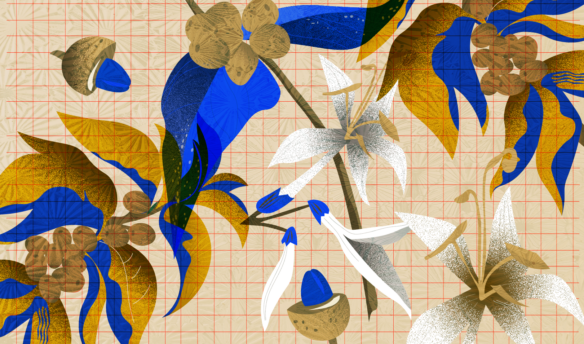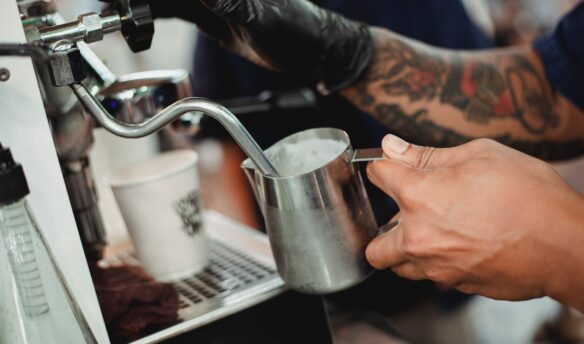[T]he Coffee Collective is a roaster quite unlike the rest. Though it started as simply a warehouse roasting space—founded in 2007 in Copenhagen, Denmark, by Peter Dupont, Klaus Thomsen, Casper Rasmussen, and Linus Törsäter—the Coffee Collective has since grown to three cafés, plus a full roasting and production facility that receives worldwide recognition.
At their inception, the founders could have boasted their trove of National and World Barista and Cup Tasters Championship titles, but thought they could offer more in the coffee world by focusing on the collective values that form the bedrock of their company.
“A lot of people think the ‘Collective’ is our four founders,” Jakob Dupont explained at a recent tour of the Godthåbsvej roastery. “We are actually a collective between farmer, roaster, and barista. This is even represented in the three points of the Coffee Collective’s [triangular] logo.”
While I sipped a pour-over of their Kenya Kieni, Klaus Thomsen sat with me and explained why the Coffee Collective’s commitment to direct trade sets them apart.
“We wanted to build a business that would focus on more transparency, paying farmers better, and working with a higher quality of coffee, seeing it through all the way to the consumer,” he said. “When we first set out, it was with a set of ideas based on our previous experience buying green coffee. We could tell the market was broken, and there was a paradox in that people in consuming countries were paying high prices for coffee, yet producers were getting less than their actual cost of production.”
The group sought after a paradigm shift in the roaster-farmer relationship. Thomsen figured if consumers were willing to pay high prices for coffee, surely there must be money in the value chain that could be delivered to farmers, as long as the roasters were committed to seeing this through.

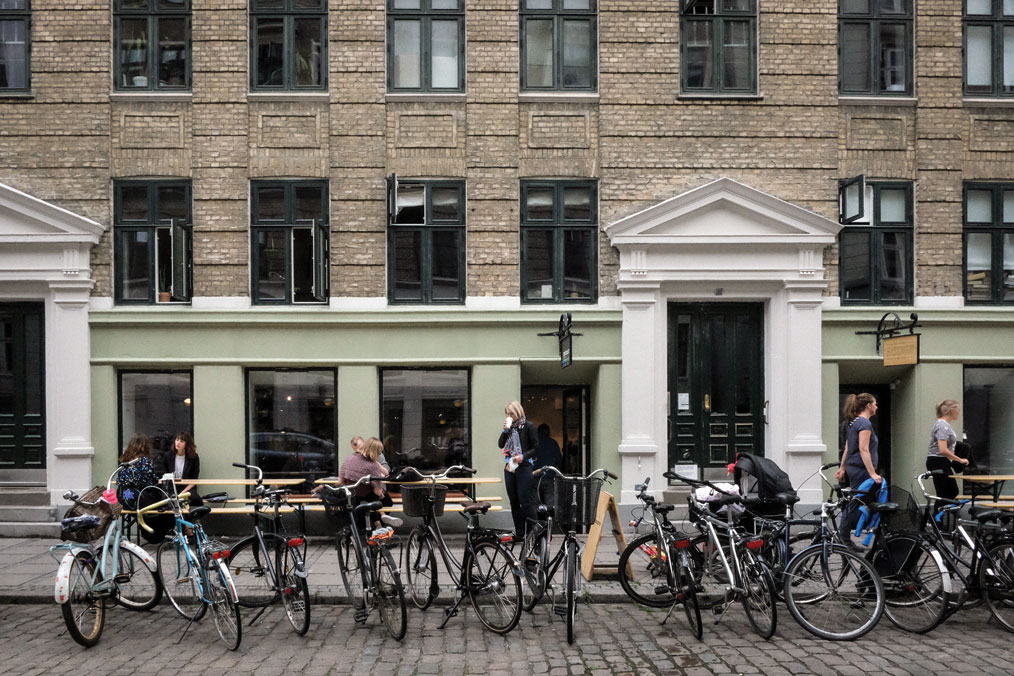
Rather than asking farmers to follow rules, as other certifications do, their idea was to first set rules for roasters purchasing green coffee. They trademarked the term direct trade, protecting it from misuse. Thomsen says that while they’ve trademarked the name, they have also invited other roasters to join them, “provided they will live up to the same principles of transparency.”
As the Coffee Collective looks forward, they plan to further develop current farm relationships by buying more coffee from each of the farmers—rather than buying very little from a great number of farmers. “[This] provides more stability and a higher income for the farmers,” Thomsen said, “which in turn means better quality for us.”
When in Copenhagen, visit any of the three retail locations: Jægersborggade, the original—a small, friendly space designed so baristas serve drinks as if from their own kitchen; Torvehallerne, an expansive open bar inside the popular, centrally-located Nørrebro market and food hall; or Godthåbsvej, the tranquil neighborhood cafe where The Coffee Collective houses their offices, roasting, and production.
—Elizabeth Chai specializes in design, branding, illustration, and photography for the specialty coffee industry.

